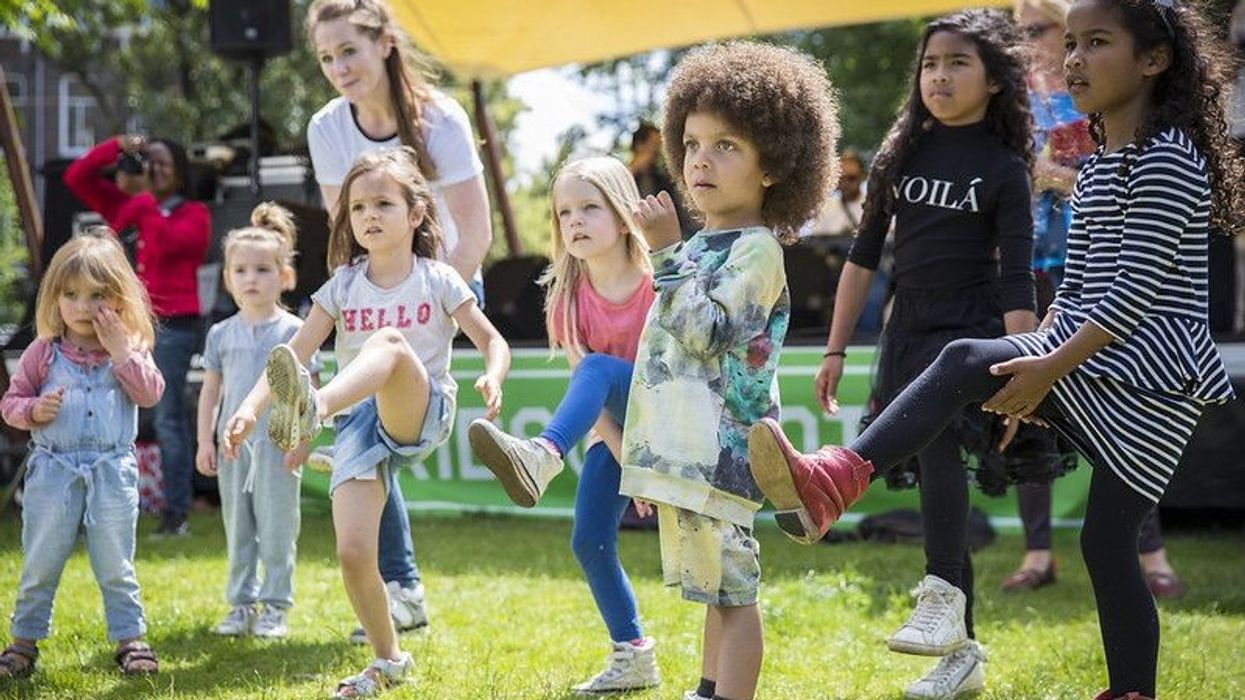Every child can have their moments of naughty behaviour, when you're talking and they are just not listening, or it seems like they are going out of their way to go against your rules.
But what happens when it feels like your child is naughty every single day? When no amount of discipline seems to work and it feels as though your child keeps getting naughtier?
For parents, it can be tempting to blame ourselves for our kids' behaviour and feel like we have done something wrong.
In reality, there are a number of reasons why our naughty kids might be acting out, and it's important to learn what the cause might be so that we can work out how to help.
If you can identify where your child's naughty behaviour comes from, then you can start to gain an idea of what your naughty child might need in order to stop misbehaving.
Sometimes naughty behaviour can be solved by something simple like a snack or physical exercise, and other times it might be a cry for help, signalling that your child needs a bit more family time and attention from their parents.
It's important to remember that raising naughty kids is not an indication of bad parenting, a lot of the time this kind of behaviour is just part of growing up.
If you're dealing with a problem seven-year-old, check out this piece on 7-year-old tantrums, or take a look at these negative behaviour traits your child might be exhibiting for more information and guidance.
Should I Be Worried About My Child's Behaviour?

There are all sorts of reasons why children act naughty from time to time, and most naughty behaviour is a perfectly natural part of your child growing up.
A lot of the so-called naughtiness that we're dealing with is actually caused by a lack of development in the self-control area of children's brains. This matures over the course of their childhood and teenage years, which can result in younger kids not being able to control their impulses, and acting against our requests.
You know when you ask them not to do something, and it's like they can't stop themselves doing it anyway? That's what we're talking about.
Kids can act out because they are reacting to your mood. They might also just be looking for a little bit more attention, especially if you've been distracted.
Children thrive on laughter and play, and acting silly might just be their misguided attempt to engage you in some playtime.
Make a point of dedicating set times to hanging out with your child every day, and you might be surprised at how much that benefits them and stops them from being naughty. In a lot of cases, children just need to burn off energy, and this translates as naughty behaviour.
Sometimes younger children will have tantrums when they're in social situations, and their behaviour is much better at home. It may be the case that they are feeling overstimulated in these situations and are struggling to cope.
It's important to balance fun and energetic time with some calm downtime to make sure your child has time to rest and relax.
It might be the case that your naughty child is actually just feeling hungry, tired or sick, and doesn't know how to deal with that feeling.
Make sure you keep an eye on your child's physical needs so that you can tackle any naughty behaviour that could be squashed by a snack or a nap. Sometimes (not always) it really can be that easy.
Especially if your child is experiencing inconsistency in their routines for one reason or another, it's really important to make sure you keep their routine as stable as possible.
At times, the behaviour that we perceive to be naughty is actually just our child dealing with big emotions.
As we grow up, we learn what is and isn't appropriate to do when we feel different emotions, and kids that scream and cry haven't learnt that yet. In parenting, it's important for us to recognise when our child is dealing with overwhelming emotions and treat that in a calm and understanding manner.
If we encourage them to suppress or hide these feelings, this could lead to far bigger problems for them down the line.
If you feel as though your family is struggling with your child's moods and tantrums, and your misbehaving child is pushing you to your limits where you're struggling to cope, it's probably time to bring in some extra support.
Seeing a specialist could support you with working out if they have ADHD and will give you and your child some coping techniques to make things a little bit easier to deal with at home.
Getting help with your child's behaviour might seem like a last resort, but it might be the best thing you ever do for your family.
Our 11 Top Tips For Bad Behaviour

We've pulled together a list of our top tips for how to deal with a naughty child from parents that have been through it all.
1. Be clear and consistent in your actions.
Try to stick to any boundaries or rules so that you don't confuse your child, especially when they're young. When you mean no, make sure you vocalise your, 'no' straight away, to make it clear that there isn't room for your child to negotiate.
If you give in to their tantrums or tears sometimes but not always, it can make them a lot more likely to feel confused and engage in naughty behaviour.
2. Teach your child, don't punish them.
Think about the last time someone shouted at you. It probably didn't make you feel like you were loved and supported by that person, did it? Chances are, your child is going to benefit far more from positive reinforcement of the things they do well than negative reinforcement of the things they get wrong.
Try reinforcing the good behaviour you're looking for with praise to help children learn how to behave. A lot of the time, punishment can make things worse and cause your child to lash out, especially if they don't understand what they're being punished for.
3. Give your child attention whenever you can.
If the adults in your child's life have been distracted, and you've noticed their behaviour getting worse at the same time, then it might be time to take a slightly more active role in showing your child some love.
A lot of the time, naughty children are just trying to get their parents to spend time with them, and acting out is the only thing you respond to when your mind is on other things.
Consciously making the effort to listen to your kids can make a world of difference to them, and stop them from reverting to naughtiness to make you notice them.
4. Limit screen time.
It can be tempting to stick naughty kids in front of the TV to have a moment's break, but the more time children spend staring at a TV or computer screen, the more they're likely to feel burnt out and need to let off steam.
Try to have a cut-off time after an hour or two, and make sure you stay consistent in your rules so they know where they stand.
5. Ditch the shouting.
When you can, anyway (we won't blame you for the occasional slip up). Try to teach responsibility for your child's actions, and make the consequences clear.
When adults show their anger with shouting, all that happens is that children learn that shouting is acceptable, and you're likely to deal with a lot more raised voices from them in the future.
6. Say no firmly, and say it straight away. If a parent has made a rule, it's important to stick to it. When you show that you can be persuaded sometimes, you lose that sense of authority, and it can be harder to discipline your kids the next time they try to do something against the rules.
7.
Support your child's independence. Kids can often lash out because they're looking for ways to be their own person, and giving them opportunities to be independent can be a great way for parents to give their kids the opportunity to feel more in control.
Letting a younger child choose their outfits or what they have for dinner are good ways for them to demonstrate their independence, and letting younger kids help you with 'grown-up' tasks will show them that you see them as an equal, and make them more likely to want to show you that they're grown up too.
8. Make consequences clear.
Punishment and shouting can feel like the right thing to do to stop children from behaving wrongly in the future, but when kids don't recognise the consequences of their behaviour, they tend to carry on doing those things we don't want them to do.
Explaining why their behaviour was wrong, and what will happen because of that behaviour is a better way to help young kids understand why they shouldn't do some things.
If you give your child a negative consequence every time they break a rule, they will start to understand that bad things happen when they misbehave, and it should help them to start thinking twice before doing naughty things.
9. Set clear limits.
Children aren't so good at recognising their own needs, and that's where the role of the parent comes in.
If you offer your child a bag of sweets and tell them to help themself, then don't be surprised if they eat every last one, even if it makes them sick.
An important part of parenting is setting those limits for kids while they're still learning how to set them for themselves, and if you make them clear from the start, it will help your child to make better decisions as they get older.
10. It's not your job to fix their mistakes.
Parents can be tempted to sort things out for their children after they do something naughty. It's important for a parent to teach their child that different actions will lead to different reactions outside the house.
If they decide not to do their school work, let them get a bad grade, don't try to help them do it in the morning. It's an act of love to let your kids learn the hard way while they're young, it is much better than having to learn it when they're adults!
11. Stay strong during tantrums. As parents, sometimes all we want to do is stop our children from screaming at us. Is that really so wrong?
It turns out that it actually is. Giving in to tantrums will tell your child that screaming louder gets the results they want. You might stop the tears for now, but don't be surprised if they come back later in full force.
If you found this article helpful, then why not take a look at what to do if a three-year-old's behaviour is out of control or our guide to table manners for kids?










